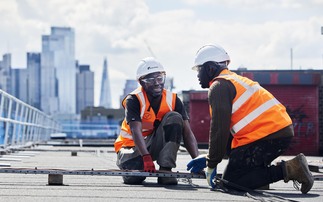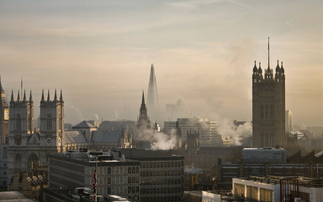
In the first installment of a new series marking the countdown to the Net Zero Festival later this month, BusinessGreen talks to leading green economy figures about what net zero means to them
What does net zero mean to you? We have a responsibility to future generations to prevent dangerous levels of climate change and that means reaching net zero. It's also a huge economic opportunity for Britain to gain a first mover advantage in the industries of the future.
When did you first become interested in the net zero transition? When I was a parliamentary researcher, my MP - Graham Stuart - was one of the first MPs to call for the UK to update its long-term climate target to a net zero target following the signing of the Paris Agreement in 2015. I also wrote a think tank paper in 2018, 'Hotting up', for Bright Blue, which set out the case for a net zero target and a pathway to reaching it.
What are your net zero priorities for the year ahead? Ahead of COP26, I will be working with the MPs in the Conservative Environment Network's Parliamentary Caucus to campaign for new net zero policies that will get us on track to the 2050 target, while creating jobs and supporting the economic recovery. In particular, I'd like to see more support for households to replace broken gas boilers with heat pumps and funding for a pilot green steel factory.
If you weren't working where you are currently, where would you be working? I couldn't think of a more rewarding or interesting place to be working than where I am now!
What excites you most about the net zero transition? I'm most excited about the opportunity to create new industries such as carbon capture and battery manufacturing and to bring new jobs and investment to the UK's industrial heartlands in the North of England and the Midlands.
What part of the net zero transition is too often overlooked? People often overlook positive role of international trade in spreading the best clean innovations around the world and delivering global net zero in the most cost-effective way.
What keeps you awake at night? I'm pretty optimistic generally about our ability to address climate change, but I worry that other countries aren't increasing their climate ambition sufficiently fast.
If you had $100m for one net zero technology, where would you invest? I'd invest in cultured meat. There is huge scope for cost reductions, and so many potential benefits from better animal welfare and enhanced food security, to cleaner rivers and more space for nature.
Will we achieve net zero emissions by 2050? I think we will, yes, and it will be cheaper than we expect!
Describe the net zero economy in three words. Modern, efficient, fair.
What can delegates expect from your speaking slot? We've been fortunate to date that climate change has stayed out of the culture war, but to maintain that consensus, I'll be arguing that climate campaigners need to communicate in ways that resonate with conservative audiences. I also think that, to bring the public with us and maintain popular consent, consumers need government support to reduce the upfront cost of clean technologies in their initial phases.
What are you looking forward to at the Net Zero Festival? Businesses are making and selling the solutions to climate change, and their innovations will help us get to net zero faster and cheaper, so I'm looking forward to hearing from corporate leaders about their plans for tackling climate change.
What would your net zero superpower be? I'd love to be able to accelerate innovation and experience curves, so we can start deploying cheaper clean technologies sooner.
How do you unwind after a long day helping advance the net zero transition? Drinks with friends at the pub, cooking dinner, and reading fiction.
Sam Hall is the director of the Conservative Environment Network (CEN).
Have you secured your tickets for the Net Zero Festival 2021 yet? Interested parties can sign up now for a free pass here






